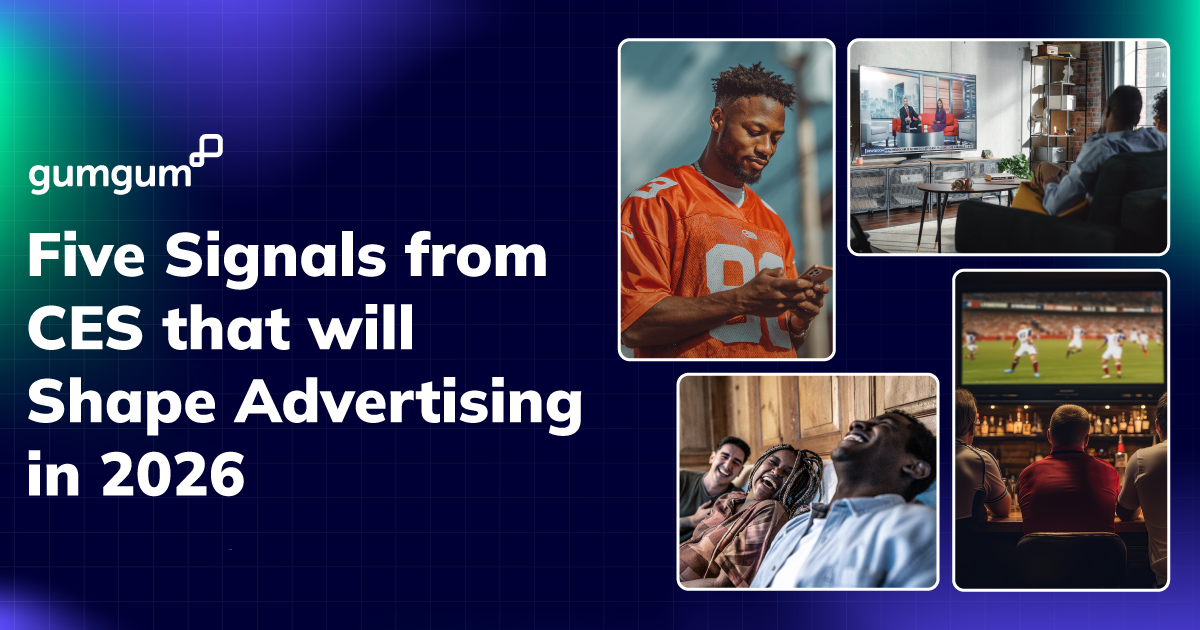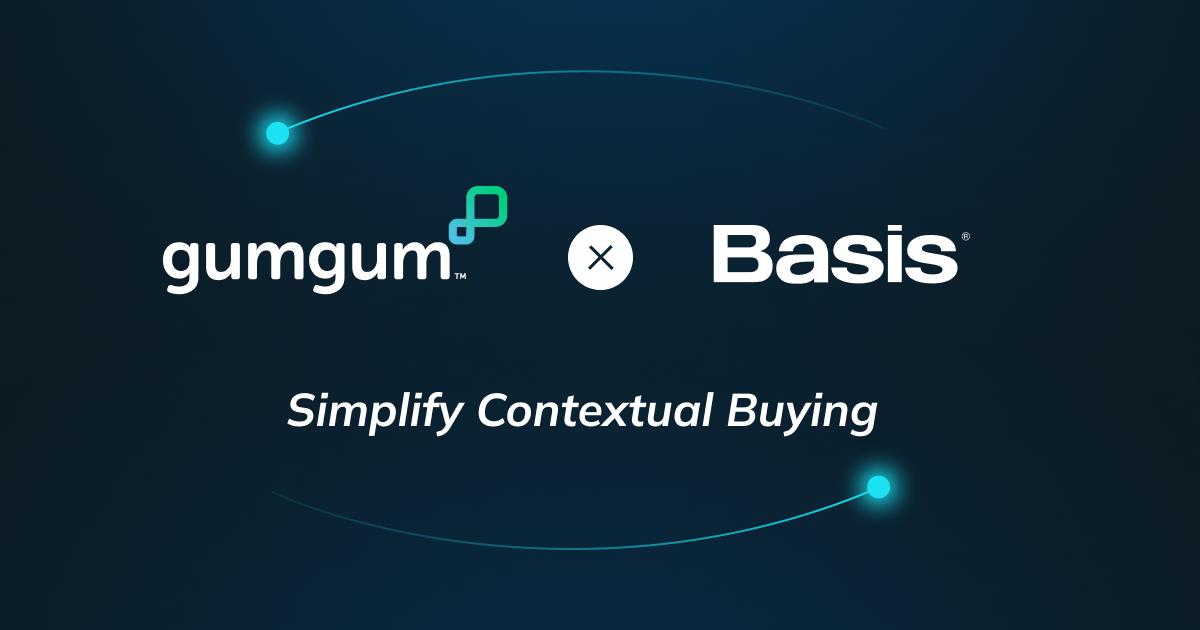Ahead of Cannes, GumGum partnered with ADWEEK to better understand how marketers are thinking about contextual today, and how contextual can close the relevance gap in digital advertising. Here are the top findings:
- Untapped relevance: While 59% of marketers say relevance is critical to success, only 22% prioritize targeting based on what audiences are reading or watching in the moment.
- Adoption gap: Only 35% are very likely to use contextual targeting in their next campaign, despite its privacy and reach benefits.
- Contextual blind spot: Despite 71% of marketers endorsing a multi-pronged targeting strategy, contextual targeting remains underused, often sidelined due to perceived complexity and limited channel access.

Building off this research, ADWEEK and GumGum co-presented a Group Chat at ADWEEK House at the Cannes Lions Festival of Creativity. The Group Chat, titled “The Targeting Remix: Context, Behavior, and the Battle for Relevance,” wasn’t your average panel, it was a candid group discussion on the state of targeting, contextual, and how to break through the noise for consumer relevance. The session ended up being the highest-attended Group Chat at ADWEEK House, securing contextual’s role as a key topic of importance among some of the world’s biggest brands, creatives, and publishers.

Moderated by Ryan Joe, Editor-in-Chief of ADWEEK, the discussion brought together an all-star lineup of marketers.
Their collective mission? To break down the realities of digital targeting and reimagine a smarter, more human approach by leveraging contextual.

Worst Ads Ever? Let’s Just Say…We’ve All Been There
To kick things off, the group shared the worst ad experiences they’ve ever had, and whether they actually bought the product.
Some responses included:
- COVID-era ad fatigue from repetitive messaging.
- Over-targeting based on one-time purchases.
- Getting stuck in algorithmic loops, like being served lightbulb ads for weeks.
- The annoyance of retargeting ads for products already bought.
The underlying message? Personalization isn’t always personal, and often misses the mark. Context, on the other hand, offers relevance without the creep factor.

Context, Mindset, and the Case for Smarter Targeting
The conversation shifted to how context-driven strategies can elevate digital advertising by aligning with consumer mindset in the moment.
“How do you go about delivering the right message when the consumer is in the mindset to be receptive to your product?” That question became a central theme. Our CMO Kerel emphasized mindset as the entry point:
“If you’re reading about travel, that’s the mindset you’re in. If you just watched your team lose in the playoffs, you’re in a different mindset, and the ad should match that.”
He explained how GumGum uses real-time analysis of what someone is watching, listening to, or reading to tailor messages that meet users in their moment. “We can understand what someone is listening to from an audio perspective, or if they're watching a video, frame by frame. Based on that, let's deliver this ad with this message. That’s how we determine mindset.”
Ryan Joe tied it all together: “No one’s online for ads, they’re there for content. Giving them a great digital experience is what it comes down to.”

Context in the Wild: From Slurpees to Flights to Nice
Real-world examples brought the concept to life:
- 7-Eleven leverages contextual signals like time of day and weather to promote Slurpees and snacks at just the right moment.
- Expedia serves airline ads to travelers actively researching destinations (say, someone browsing flights to Nice).
The key isn’t just relevance, it’s resonance:
“If you're advertising in an environment where it is relevant content, if it's a magazine that you're reading, if it's a topic that you're really interested in, if it's a shop that you are actively browsing for a product category that you've bought before, that doesn't feel creepy. That doesn't feel intrusive to the experience. So I actually think that's probably where contextual advertising has an advantage again over other forms of targeting.” - Katie Streeter Hurle, Chief Strategy Officer, SMG
“You're actually talking to real people in a real moment, and they are having an experience. And you 're going to have a positive association with your brand if you're showing up at the moment that they are in. If we are targeting them solely based on demographic or behavioral or past things, that's we're all very complex people…And so I think that's really where contextual targeting is coming in.” - Jennifer Andre, VP, Media and Sales, Expedia Travel Media Network

Final Thought: Targeting Needs a Remix and Context Should Be the Beat
As privacy regulations tighten and consumers demand more control over their data, this group agreed: the future of advertising lies not in more tracking, but in more relevant, respectful experiences.
“That's what's great about contextual: You can take it, structure it. You're turning patterns into predictions and then predictions into performance…we all can see these patterns evolving. And contextual actually allows us to do it really nicely because you can shrink down people's behaviors, almost throw them out the window and say, ‘What are they consuming when they do it as opposed to who are they?’” - Mike Nuzzo, SVP and Head of Data, Hearst Magazines
"As a brand builder and someone who, yes, wants to be culturally relevant and contextually relevant, I also wanna make sure I'm protecting the equity of the brand and I'm positioning us in a place that's relevant or reinforces values that we care about. So it's also important from the brand's perspective, not just from the consumer who's receiving the ad.” - Lisa Pillette, Global CMO, formerly of Fossil, Casper, Lacoste
In a crowded, fragmented attention economy, context cuts through. It’s not about knowing who someone is; it’s about understanding where they are, what they care about, and showing up in that moment with purpose.
At GumGum, we’re proud to help lead that evolution and Cannes was the perfect place to explore what comes next. Huge thanks to ADWEEK for being such great partners and to our Group Chat participants for joining an honest, engaging conversation on the future of advertising and contextual targeting.










